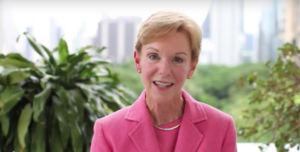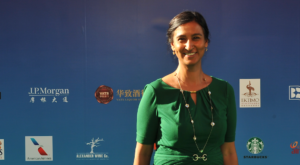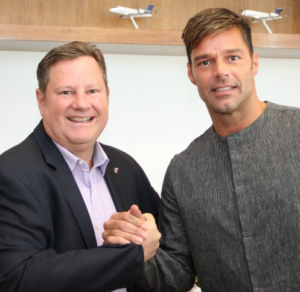‘We come in All Shapes and Sizes’
 Kristie Kenney often seems upbeat and chipper, but on the day I first met her in 2012 in Bangkok, where she was the U.S. ambassador, she was especially excited, in anticipation of a rare event the next day.
Kristie Kenney often seems upbeat and chipper, but on the day I first met her in 2012 in Bangkok, where she was the U.S. ambassador, she was especially excited, in anticipation of a rare event the next day.
The Boeing Company was flying in its newest commercial plane, the Boeing 787 Dreamliner, which she saw as an opportunity to promote the U.S. aircraft industry, and American business in general. An added bonus was the fact that the president of Boeing for Southeast Asia who also flew in for the event, Ralph Boyce, was one of Kenney’s predecessors at the embassy in Bangkok, whom many Thais still remembered because of his superb command of their language.
An event with the U.S. ambassador in almost any country would attract media attention, and Kenney used the chance to showcase issues she deemed important to American interests. Promoting U.S. business and expanding trade was one of the top issues on her agenda. “Every single day of the year we promote American companies and help to find new opportunities for Americans to do business here,” she said. “It starts with me wearing a Coca Cola T-shirt at a basketball game or carrying a Starbucks cup.”
Not long after the Boeing event, Kenney gave a speech at Cotton Day, organized by Cotton USA to promote American cotton exports. She wore a dress made entirely of U.S. cotton…
Photo courtesy of U.S. Mission Thailand
>> READ THE FULL STORY ON THE HUFFINGTON POST

 Sumreen Mirza’s path to the Foreign Service began in her parents’ homeland, Pakistan. She was an intern at an NGO in the southern port city of Karachi in 2002, when the U.S. Consulate there was attacked in a massive explosion that killed 15 Pakistanis.
Sumreen Mirza’s path to the Foreign Service began in her parents’ homeland, Pakistan. She was an intern at an NGO in the southern port city of Karachi in 2002, when the U.S. Consulate there was attacked in a massive explosion that killed 15 Pakistanis. Michael Hammer was nine years into his Foreign Service career in 1997, when he did advance work on President Bill Clinton’s visit to Vancouver, Canada, for the annual Asia-Pacific Economic Cooperation summit.
Michael Hammer was nine years into his Foreign Service career in 1997, when he did advance work on President Bill Clinton’s visit to Vancouver, Canada, for the annual Asia-Pacific Economic Cooperation summit.